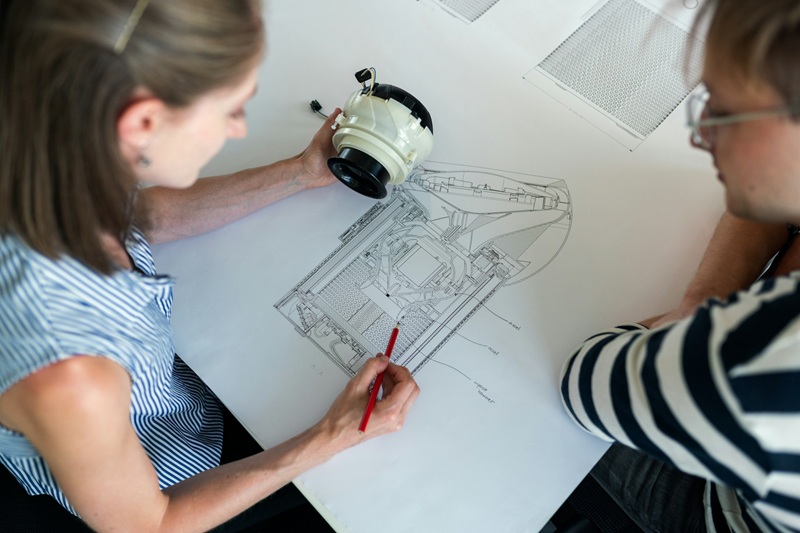Leave a Lasting Legacy in a Built Environment with a Diploma in Civil Engineering

A Diploma in Civil Engineering opens the door to structural innovation and infrastructure expertise. This program combines physics, math, and building design to prepare students to apply abstract ideas to the contemporary world. A civil engineering diploma carefully covers structural analysis, materials science, geotechnical engineering, and fluid dynamics. Each course module builds on the previous one to provide students with the theoretical and practical abilities needed to overcome civil engineering’s different problems. The study of building materials, surveying methods, and project management prepares students to design and manage complicated engineering projects.
B Tech in AI: Unlocking a Future in Intelligent Innovation
This diploma program emphasizes hands-on learning. Laboratory, field, and internship work gives students actual experience to apply classroom information to real-world situations. These hands-on learning experiences teach how to evaluate and handle environmental and technical aspects that affect civil engineering projects. The diploma curriculum also promotes critical thinking and problem-solving. Computer-aided design (CAD) and current engineering software courses help students innovate and expedite engineering procedures for the changing industry. Integrating these technologies allows students to build sustainable and resilient infrastructure.
A diploma in civil engineering is crucial to social progress as well as professional possibilities. The program’s pursuers design tomorrow’s cities, roads, bridges, and water systems. They are essential to building sustainable, efficient, and safe communities by tackling urbanization, climate change, and resource management. All in all, this program is distinguished and revolutionary. Students get a deep grasp of engineering concepts, practical skills, and inventive thinking to succeed. The pass-outs leave with the knowledge and ambition to improve the world, demonstrating civil engineering’s lasting effect.
Objectives of the Diploma at a Glance
This respected academic program aims to fulfill numerous essential objectives that help students grow holistically and become engineering professionals. The primary goal of a diploma is to teach basic engineering ideas. Students study mathematics, physics, and engineering mechanics to provide a strong basis for solving difficult engineering issues. All civil engineering studies and practice rely heavily on this theoretical understanding. The credential emphasizes advanced technical abilities. Students can ensure infrastructure safety, efficiency, and sustainability by learning these technical course modules.
Emphasis on hands-on experience and technical skills
The curriculum stresses hands-on experience and technical skills. Laboratory work, field research, and internships help students put theory into practice. These hands-on experiences teach engineering topics including site surveys, soil testing, construction management, and quality control. The program aims to connect classroom learning with practical application to equip students for professional difficulties. You can also take up B. Tech in Civil Engineering after your diploma through lateral entry.
Instilling professional ethics and accountability
Instilling professional ethics and accountability is crucial. Civil engineers shape the built environment with far-reaching choices. The curriculum stresses engineering ethics, including safety, environmental stewardship, and social responsibility. The diploma guarantees students are technically proficient and conscientious professionals who care about society by instilling these characteristics.
Communication and collaboration training
The diploma concludes with communication and collaboration training. Civil engineering projects include interdisciplinary teams and stakeholders, requiring clear communication and coordination. Students learn to communicate eloquently in writing and work well in teams to attain objectives. This goal prepares students for professional engineering collaboration.
All in all, a Diploma in Civil Engineering aims to create well-rounded, talented, and ethical engineers. The curriculum balances academic knowledge, practical experience, problem-solving, ethics, and communication to equip students for professional success and significant contributions to civil engineering and society.
Scope after Diploma in Civil Engineering
A Diploma in Civil Engineering opens up several doors in the building and infrastructure industries. The program provides a solid basis for profitable jobs, social growth, and built environment improvement. Education is another potential option. Diploma holders may also pursue B. Tech Civil Engineering. This improves their technical skills and offers openings to higher-level and specialized industrial employment. Advanced degrees in structural engineering, geotechnical engineering, environmental engineering, and urban planning enable students to specialize and advance their subject.
The consulting industry also offers several prospects. Junior engineers at engineering consulting firms help design and plan civil engineering projects. These responsibilities require feasibility studies and thorough project reports. The variety of complex projects experienced individuals, and exposure to the latest industry trends make consultancy employment highly regarded. Entrepreneurship is another option. Diploma holders with practical and technical abilities may start building or contracting enterprises. This entrepreneurial approach enables people to use their knowledge to create residential and commercial structures, supporting industry growth and innovation.
All in all, a Diploma in Civil Engineering opens several doors to careers that suit diverse interests and goals. Diploma holders are prepared to contribute to civil engineering and the community whether they work, study, and serve in the government sector, consult, or start a business. The diploma is a strong foundation for professional success and satisfaction in one of the world’s most critical and dynamic fields.
Who Diploma in Civil Engineering is ideal for?
A diploma in Civil Engineering suits those who want to flourish in both collaborative and autonomous work situations. Civil engineering projects demand collaboration and self-direction. Analytical, detail-oriented, and systematic planners are bound to succeed in this sector. For purpose-driven, responsible people who want to develop society via sustainable and resilient infrastructure, the program is excellent. This academic route will satisfy hands-on learners, problem-solvers, lifelong learners, and professionals. In a nutshell, a Diploma in Civil Engineering is for visionaries who want to make a mark on the built environment.
Concluding Remarks
A Diploma in Civil Engineering offers limitless potential and exciting opportunities. This prestigious program opens doors to a wide range of careers, from construction and project management to design and consultation. The diploma holders may become rewarding site engineers, overseeing infrastructure construction to ensure quality and sustainability. Government organizations and municipalities provide urban planning, transportation, and public works jobs that help cities expand and modernize.
For individuals seeking further heights in their careers, B Tech Civil Engineering may lead to greater career success. Structural, geotechnical, and environmental engineering may lead to advances in green construction and smart city technology. Diploma holders may also start construction or consulting firms, promote the sector and lead. The diploma brings you a world of exciting opportunities to alter the world’s infrastructure and make an everlasting imprint on the built environment.




